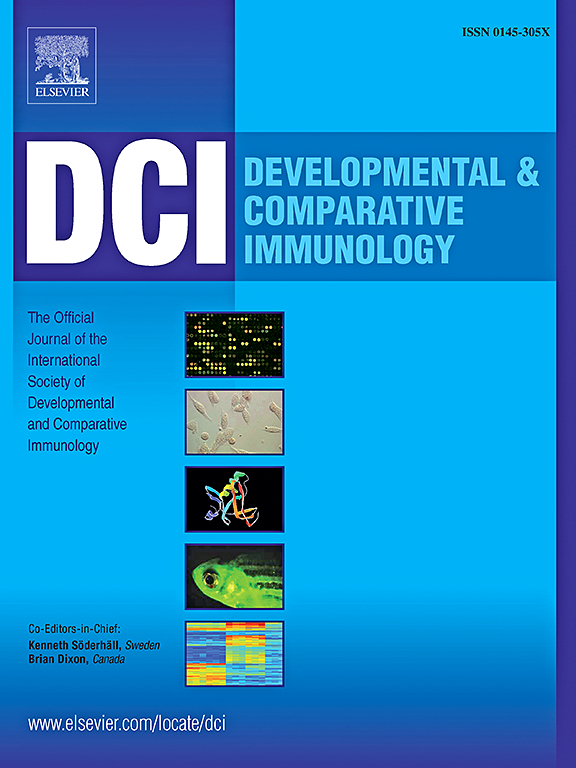Lipopolysaccharide structural modification in Salmonella Gallinarum targeting lipid a deacylation and O-antigen reduces virulence and endotoxicity with competitive protection against a wild-type challenge in chickens
IF 2.7
3区 农林科学
Q1 FISHERIES
引用次数: 0
Abstract
Fowl typhoid (FT), caused by Salmonella Gallinarum (SG), inflicts a significant economic burden on the poultry industry. Our study focused on a non-reversible gene deletion to develop a safe and effective SG vaccine strain through lipopolysaccharide (LPS) structural modification. The virulence-attenuated SG JOL914 strain, generated by deleting the global regulator lon gene, was engineered by in-frame deletions targeting the LPS structure. Interruption on LPS deacylation was introduced by pagL deletion, JOL2997, to mitigate endotoxicity induced by the live vaccine. The O-antigen was truncated by rfaL deletion, JOL3004, to compromise virulence and facilitate Differentiating Infected from Vaccinated Animals (DIVA). Both genes were depleted in JOL3016 (ΔlonΔpagLΔrfaL) for their compounding effects. Subcutaneous administration of the engineered strains in chickens showed reduced endotoxicity, particularly demonstrated by JOL3016 with 2.55-fold and 3.79-fold reductions in TNF-α and IL-1β, respectively. Furthermore, discernible effects on body weight gain and the absence of pathological signs demonstrated the safety profiles of the inoculated strains. Administration of mutant strains substantially increased antigen-specific IgY, sIgA, CD4+, and CD8+ T cells, supporting immune response elicitation. The absence of antibodies against O-antigen in birds immunized with JOL3004 and JOL3016 demonstrated their DIVA capability. The result was corroborated by improved protection with a rational body weight gain and minimal tissue distortion following an SG WT challenge. JOL2997-immunized birds showed promising survival, and negligible invasion of the challenge strain in vital organs, highlighting its protective efficacy. This study underscores the potential of bioengineered vaccine strains to improve poultry health and productivity, reinforcing the necessity for ongoing vaccine development research.
求助全文
约1分钟内获得全文
求助全文
来源期刊
CiteScore
6.20
自引率
6.90%
发文量
206
审稿时长
49 days
期刊介绍:
Developmental and Comparative Immunology (DCI) is an international journal that publishes articles describing original research in all areas of immunology, including comparative aspects of immunity and the evolution and development of the immune system. Manuscripts describing studies of immune systems in both vertebrates and invertebrates are welcome. All levels of immunological investigations are appropriate: organismal, cellular, biochemical and molecular genetics, extending to such fields as aging of the immune system, interaction between the immune and neuroendocrine system and intestinal immunity.

 求助内容:
求助内容: 应助结果提醒方式:
应助结果提醒方式:


